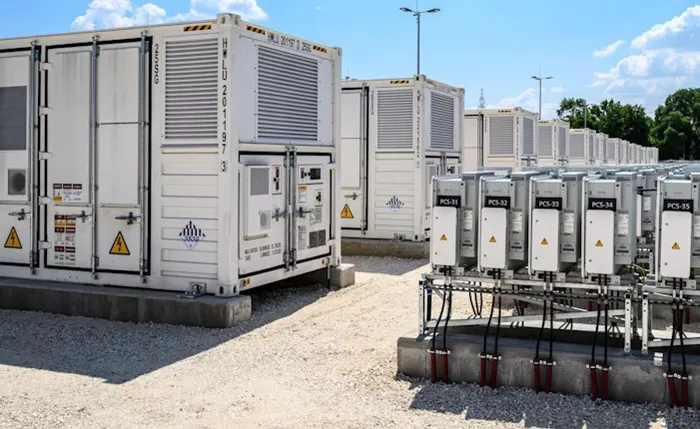MET Group has officially opened Hungary’s largest battery energy storage system (BESS) at its Dunamenti gas power plant near Budapest. The facility has a capacity of 40 megawatts (MW) and can store energy for two hours, providing a total storage capacity of 80 megawatt-hours (MWh).
The Swiss-based energy company said the new facility is part of a broader effort to expand battery storage projects across Europe.
In 2022, MET installed a smaller 4 MW / 8 MWh pilot unit at the same site in Százhalombatta, Pest County. That system uses Tesla Megapack 2 batteries. The new installation, however, is equipped with batteries supplied by Huawei Technologies, while Hungarian firm Forest-Vill served as the main contractor.
According to MET, the combined capacity of the two systems could power all of Budapest’s public and decorative lighting for four hours.
Supporting the Energy Transition
At the inauguration ceremony, Péter Horváth, CEO of Dunamenti Power Station, said battery storage is vital for the energy transition. “BESS allows more renewable energy to be added to the power grid,” he noted.
Péter Kaderják, President of the Hungarian Battery Association, also spoke at the event. He emphasized the importance of using reliable and cost-effective technologies to maximize Hungary’s renewable energy potential. “That’s why we support Hungary’s energy policy, which prioritizes the green transition,” he said.
Expanding Across Europe
MET Group said the new facility is part of its strategy to meet the growing need for energy balancing solutions in Europe. In 2024, the company acquired French battery developer Comax, strengthening its presence in the battery storage market.
Many of MET’s current projects include battery systems located next to solar power plants, aiming to store surplus renewable energy for later use.
The company operates in 17 countries and is active in 32 national gas markets and 44 international energy trading hubs. MET employs over 1,100 people. In 2024, it reported consolidated sales revenue of €17.9 billion, trading 140 billion cubic meters of natural gas and 76 terawatt-hours (TWh) of electricity.

